Dehydration occurs when the body loses more fluids than it takes in, leading to symptoms such as thirst, dry mouth, and fatigue. Proper hydration is crucial for maintaining bodily functions, including digestion, circulation, and temperature regulation. While drinking water is the most direct way to hydrate, certain fruits and vegetables can also significantly contribute to fluid intake due to their high water content. This blog post highlights the best produce to reach for if dehydration is a concern, offering not just hydration solutions but also nutritional benefits that support overall health.
Contents
Watermelon
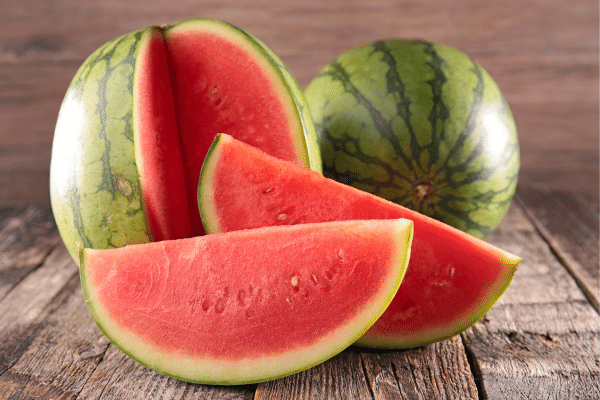
Watermelon is celebrated for its hydrating properties, boasting a water content of over 90%. This makes it an excellent choice for those looking to increase their water intake through food. Watermelon is not just a refreshing summer snack; it’s also a powerhouse of hydration that can help replenish fluids lost through heat or exercise. Its sweet, juicy nature makes it a popular choice, ensuring that hydration is not only necessary but also enjoyable.
The nutritional profile of watermelon extends beyond its water content. It is a significant source of vitamins A, C, and B6, all of which play vital roles in maintaining health. Vitamin C, for example, boosts the immune system, while vitamin A is essential for eye health. Moreover, watermelon contains antioxidants such as lycopene, which has been linked to heart health and cancer prevention. Thus, watermelon offers a blend of hydration and nutritional benefits, making it a top choice for combating dehydration.
Cucumber

Cucumber, with its impressive water content of about 95%, stands out as an ideal food for hydration. This crunchy, refreshing vegetable is almost synonymous with spa treatments, suggesting its deep association with refreshment and hydration. Consuming cucumber helps to maintain the body’s fluid balance while also providing a cooling effect, making it especially beneficial during hot weather or after workouts.
Beyond its hydrating capacity, cucumber is lauded for its nutritional benefits. It is a low-calorie vegetable packed with essential vitamins and minerals, such as vitamin K, which is vital for blood clotting and bone health. Cucumbers also contain various antioxidants, including flavonoids and tannins, which can protect against chronic diseases by reducing inflammation and improving overall health. Their versatility in salads, sandwiches, and juices further enhances their appeal as a hydrating food choice.
Strawberries
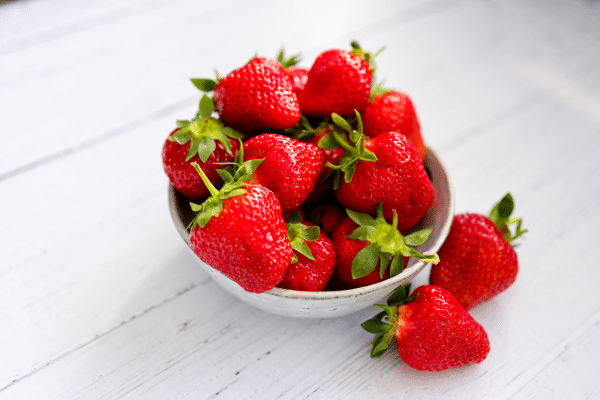
Strawberries are not only a delicious fruit but also a great way to hydrate, with a water content of approximately 91%. Their juicy and sweet nature makes them a favored choice for boosting fluid intake. Strawberries can be particularly refreshing during the warmer months, providing a burst of hydration along with a dose of summery flavor. They are perfect for smoothies, salads, or simply on their own, making hydration a delightful experience.
The health benefits of strawberries go beyond their water content. They are a rich source of vitamin C, manganese, folate, and potassium, which are essential for various bodily functions. Vitamin C is a powerful antioxidant that supports the immune system, while folate is crucial for cell function and tissue growth. Strawberries also contain antioxidants known as polyphenols, which are beneficial for heart health and blood sugar control. Including strawberries in the diet thus offers a delicious way to stay hydrated while also supporting overall health.
Celery

Celery is renowned for its high water content, which exceeds 95%, making it an excellent choice for hydration. This crunchy vegetable is often recommended for those looking to increase their fluid intake naturally. Consuming celery can help restore fluid balance in the body, thanks to its combination of water and electrolytes. It is a staple in diets focusing on weight loss and hydration due to its low calorie count and ability to promote a feeling of fullness.
Apart from its hydrating benefits, celery is packed with essential nutrients that contribute to overall health. It provides a good source of vitamins A, K, and C, along with minerals like potassium and folate. These nutrients support various bodily functions, including vision, blood clotting, immune response, and heart health. Celery also contains antioxidants and compounds that may reduce inflammation and lower blood pressure, making it a nutritious option for maintaining hydration and wellness.
Lettuce
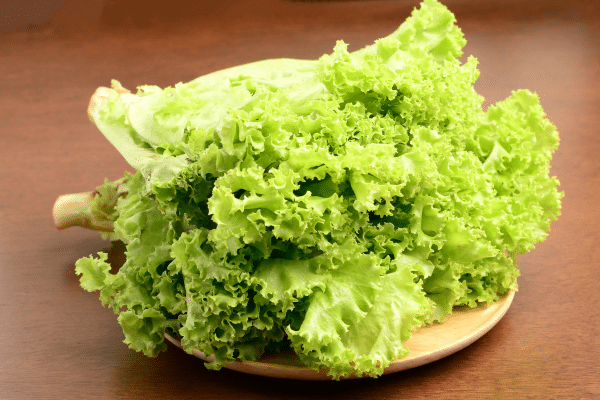
Lettuce, particularly varieties such as iceberg, is another hydrating vegetable, with a water content of around 96%. This makes lettuce an excellent base for salads aimed at increasing water intake. The crisp texture and mild flavor of lettuce make it a versatile ingredient in various dishes, enhancing hydration without compromising taste. It is particularly beneficial during hot weather when the body needs extra fluids to stay cool.
Nutritionally, lettuce is more than just water. It offers vitamins A and K, along with folate and fiber. These nutrients play crucial roles in health, from supporting eye health and immune function to aiding digestion and cardiovascular health. Lettuce is also low in calories, making it an ideal choice for those monitoring their calorie intake while trying to stay hydrated and nourished.
Oranges
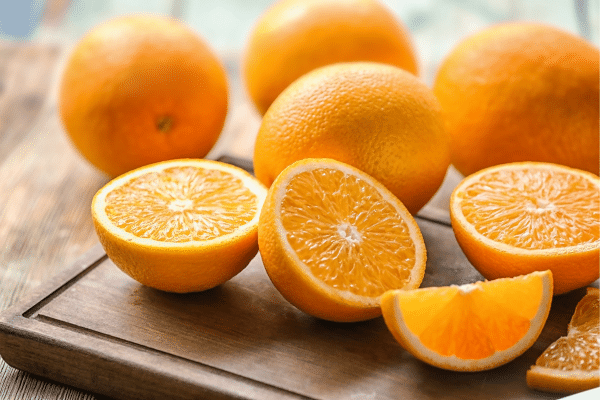
Oranges are a citrus fruit known for their high water content, approximately 86%, which can significantly contribute to hydration. This juicy fruit is not only refreshing but also packed with vitamins and minerals, making it an excellent snack for replenishing fluids and nutrients. The natural sugars in oranges provide a quick energy boost, while the fluid content helps to maintain hydration levels, making them an ideal post-workout snack.
Beyond hydration, oranges are a powerhouse of vitamin C, a nutrient essential for immune system function, skin health, and collagen production. They also offer potassium, which is important for fluid balance and muscle function, and flavonoids that have antioxidant properties. Consuming oranges can help reduce the risk of chronic diseases, including heart disease and cancer, while ensuring the body stays hydrated and healthy.
Cantaloupe
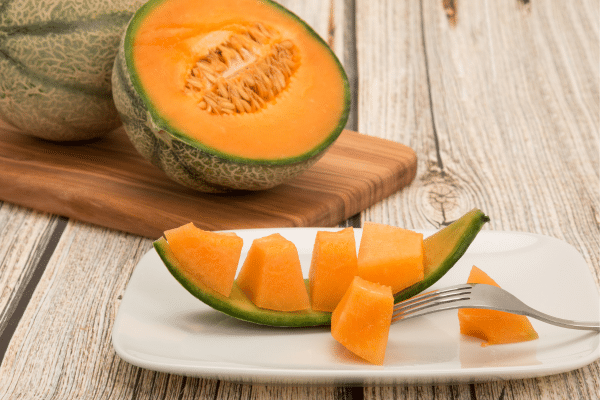
Cantaloupe, with its sweet, juicy flesh, is another fruit that excels in hydration, thanks to its water content of nearly 90%. This melon is not only refreshing but also a light and nutritious option for increasing fluid intake. Cantaloupe is perfect for breakfast, snacks, or as part of a dessert, offering a tasty way to stay hydrated. Its high water content can help prevent dehydration, especially in warm climates or during physical activity.
In terms of nutrition, cantaloupe is rich in vitamins A and C, which are crucial for immune function, skin health, and vision. It also provides a modest amount of potassium, which is essential for heart health and muscle function. The antioxidants found in cantaloupe, including beta-carotene and vitamin C, help protect against free radical damage and support overall health. Including cantaloupe in the diet is an effective way to enjoy delicious flavors while benefiting from its hydrating and health-promoting properties.
The Bottom Line
Hydration is key to maintaining health and well-being, with water being the most straightforward way to stay hydrated. However, incorporating high-water content produce into the diet offers a dual benefit of hydration and nutritional intake. Fruits and vegetables such as celery, lettuce, oranges, and cantaloupe not only provide the body with essential fluids but also supply vitamins, minerals, and antioxidants that support overall health. Embracing a diet rich in these hydrating foods can ensure adequate fluid intake while also offering a variety of flavors and nutrients to support a healthy lifestyle.


